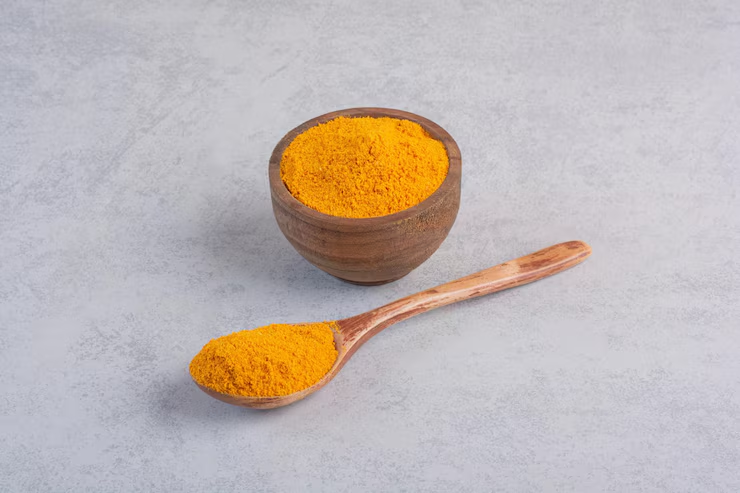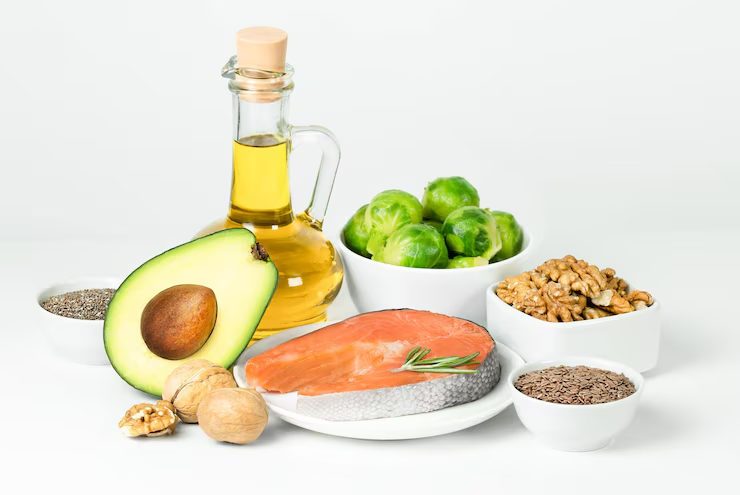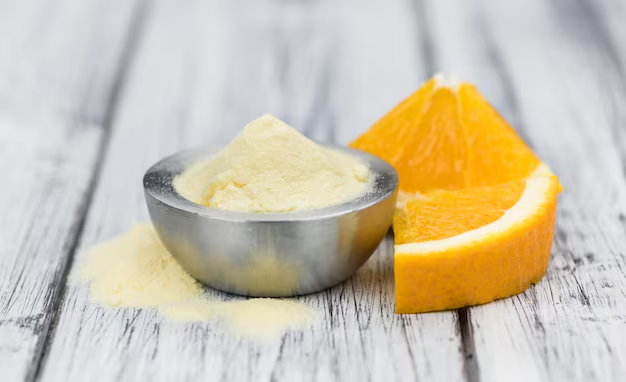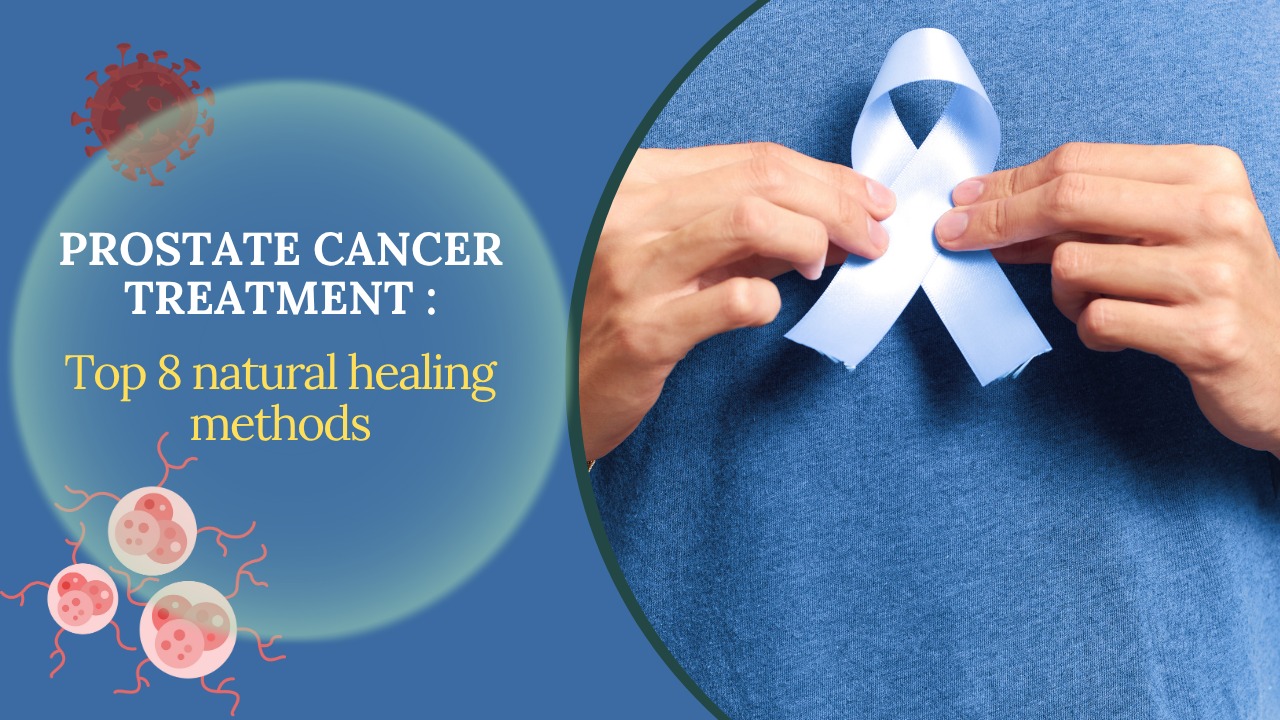Prostate cancer is one of the most common cancers affecting men around the world. Detecting it early plays a key role in successful treatment and better chances of recovery. As medical science advances, several tools and tests have been developed to identify the disease in its early stages.
These diagnostic methods include digital rectal exams, PSA (prostate-specific antigen) blood tests, imaging techniques like MRI and ultrasound, and newer tools like biomarkers and genetic testing. Each method has its own benefits and limitations, making it important for doctors to choose the right combination based on individual cases. A biopsy is often used to confirm the presence of cancer after initial screening.

Understanding these diagnostic tools helps patients and families make informed decisions about prostate cancer treatment. By catching the disease early, patients can explore a wider range of treatment options and improve their overall prognosis and quality of life.
Top Natural Prostate Cancer Treatment
Lycopene-Rich Foods
Lycopene is a powerful antioxidant that gives certain fruits and vegetables their red color. It is found in high amounts in tomatoes, especially when they are cooked, which helps the body absorb it more easily. Other good sources include watermelon, pink grapefruit, and red peppers.
Research suggests that lycopene may play a role in protecting the body from certain types of cancer, including prostate cancer. Its antioxidant properties help fight harmful free radicals in the body, which can damage cells and lead to cancer over time. Eating lycopene-rich foods regularly may support overall prostate health.
Many experts believe that adding lycopene to the diet can be a natural way to support prostate cancer treatment. While it is not a cure, it may complement medical treatments by promoting better health and reducing oxidative stress in the body. A balanced diet that includes lycopene may help improve outcomes during and after treatment.
Potential Benefits: Some studies suggest that diets high in lycopene may be associated with a reduced risk of prostate cancer. Lycopene’s antioxidant properties may help neutralize free radicals, potentially reducing DNA damage and cancer cell proliferation.

How to Include:
Consume tomato-based products like sauces and soups.
Include other lycopene-rich fruits and vegetables in your diet.
Green Tea
Green tea is a popular beverage known for its health benefits, especially due to its high content of natural compounds called polyphenols. One of the most powerful polyphenols in green tea is epigallocatechin-3-gallate, or EGCG. This compound has gained attention for its strong antioxidant and anti-inflammatory effects.
Studies suggest that EGCG may help slow the growth of cancer cells and reduce the spread of certain cancers, including prostate cancer. By reducing oxidative stress and inflammation in the body, green tea may help protect cells from damage that can lead to cancer development.
For men undergoing prostate cancer treatment, drinking green tea may offer added health support. While it is not a cure, adding green tea to a healthy diet could help enhance the body’s natural defenses. Many health professionals see it as a helpful supplement to standard care, promoting overall well-being during and after prostate cancer treatment.
Potential Benefits: Some research indicates that green tea consumption may be linked to a reduced risk of prostate cancer. EGCG has shown promise in laboratory studies by inhibiting prostate cancer cell growth and reducing PSA levels.
How to Include:
Drink 2-3 cups of green tea daily.
Consider EGCG supplements after consulting with a healthcare provider.
Curcumin (Turmeric)
Curcumin is the main active ingredient found in turmeric, a bright yellow spice often used in cooking and traditional medicine. It is well known for its strong anti-inflammatory and antioxidant properties, which help protect the body from harmful damage caused by free radicals and chronic inflammation.
Recent studies suggest that curcumin may also have potential in fighting cancer cells and slowing their growth. It appears to interfere with several cell-signaling pathways linked to cancer development, including prostate cancer. This makes it an area of interest for researchers looking into natural ways to support prostate health.
When used alongside conventional prostate cancer treatment, curcumin may provide additional benefits by reducing inflammation and supporting the immune system. Although it is not a stand-alone cure, adding turmeric or curcumin supplements to the diet may help improve overall health and possibly enhance the effectiveness of treatment plans for prostate cancer.
Potential Benefits: Curcumin has been shown to inhibit the growth of prostate cancer cells in laboratory settings. It may interfere with various molecular pathways involved in cancer progression.

How to Include:
Add turmeric to curries, soups, and smoothies.
Consider curcumin supplements, preferably with black pepper extract (piperine) to enhance absorption.
Pomegranate Juice
Pomegranate juice is well known for its high antioxidant content, especially a compound called punicalagins. These antioxidants help protect the body from oxidative stress, which can damage cells and lead to various health issues. Drinking pomegranate juice regularly may offer a natural boost to overall wellness.
Research has shown that the antioxidants in pomegranate juice may have anticancer properties. In particular, punicalagins have been studied for their ability to slow the growth of cancer cells and reduce inflammation in the body. This has drawn attention to pomegranate juice as a possible support for prostate health.
For men undergoing prostate cancer treatment, including pomegranate juice in their diet may offer added benefits. While it is not a substitute for medical care, it may help support the body during treatment by fighting harmful free radicals and promoting healing. Many experts see it as a useful addition to a prostate cancer treatment plan.
Potential Benefits: Some studies suggest that pomegranate juice may slow the progression of prostate cancer by reducing PSA levels. It may also inhibit cancer cell proliferation.
How to Include:
Drink 8 ounces of pomegranate juice daily.
Consume the whole fruit for added fiber and nutrients.
Saw Palmetto
Saw palmetto is a natural plant extract that comes from the berries of the Serenoa repens plant. It is widely known for its use in supporting prostate health, especially in men with benign prostatic hyperplasia (BPH), a non-cancerous enlargement of the prostate that can affect urination.
Many men use saw palmetto to relieve common BPH symptoms such as frequent urination, weak urine flow, and nighttime urination. It is believed to work by reducing the effects of certain hormones that can cause the prostate to grow. This makes it a popular option for men looking for natural relief.
Although saw palmetto is mainly used for BPH, some researchers have explored its potential role in prostate cancer treatment. While it is not proven to treat cancer, its support for overall prostate health may benefit men undergoing prostate cancer treatment by helping ease urinary symptoms and improving quality of life alongside conventional care.
Potential Benefits: While primarily used for BPH, saw palmetto may help reduce inflammation in the prostate and inhibit the production of dihydrotestosterone (DHT), a hormone associated with prostate enlargement.

How to Include:
Consult with a healthcare provider before using saw palmetto supplements.
Follow recommended dosages to avoid potential side effects.
Omega-3 Fatty Acids
Omega-3 fatty acids are healthy fats that the body needs but cannot produce on its own. They are mainly found in fatty fish like salmon, mackerel, and sardines, as well as in plant sources such as flaxseeds and walnuts. These fats are known for their heart-protective and anti-inflammatory benefits.
Research has shown that omega-3 fatty acids may also support prostate health. Their anti-inflammatory properties can help reduce the risk of cell damage and may slow down the growth of certain cancer cells. This has led to growing interest in their role in cancer prevention and support.
For men going through prostate cancer treatment, omega-3 fatty acids may offer added support. While they are not a direct cure, they can help reduce inflammation, support immune function, and improve overall health. Including omega-3-rich foods in the diet may be a helpful part of a broader prostate cancer treatment plan.
Potential Benefits: Higher dietary intake of omega-3 fatty acids has been associated with a decreased risk of aggressive prostate cancer. Omega-3s may help reduce inflammation and inhibit cancer cell growth.

How to Include:
Consume fatty fish like salmon and mackerel.
Include flaxseeds and walnuts in your diet.
Vitamin D
Vitamin D is a fat-soluble vitamin that the body naturally produces when the skin is exposed to sunlight. It can also be found in certain foods such as fatty fish, fortified dairy products, and egg yolks. This vitamin plays a key role in bone health, immune function, and overall wellness.
Recent studies suggest that vitamin D may also have a role in protecting against cancer. It helps regulate cell growth and supports the immune system, which may be important in slowing the spread of abnormal cells. Low levels of vitamin D have been linked to a higher risk of several health issues, including prostate problems.
In the context of prostate cancer treatment, maintaining healthy vitamin D levels may be helpful. While it is not a cure, vitamin D may support the body’s natural defenses and improve response to treatment. Getting enough sunlight and eating vitamin D-rich foods can be part of a balanced care approach.
Potential Benefits: Maintaining optimal levels of vitamin D may help protect against aggressive forms of prostate cancer. Vitamin D plays a role in cell growth regulation and immune function.
How to Include:
Get sunlight exposure regularly.
Consume vitamin D-rich foods like fortified dairy products and fatty fish.
Consider supplements if recommended by a healthcare provider.
Modified Citrus Pectin (MCP)
MCP, or modified citrus pectin, is a special form of pectin, which is a type of carbohydrate naturally found in citrus fruits like oranges and lemons. Unlike regular pectin, MCP is processed in a way that makes it easier for the body to absorb and use. This has made it a subject of interest in health research.
Scientists have studied MCP for its possible anticancer effects. Some studies suggest that it may help prevent cancer cells from spreading by blocking certain proteins involved in cancer growth. MCP may also support the immune system and help remove harmful substances from the body, offering a natural way to support health.
In relation to prostate cancer treatment, MCP may be a helpful addition to a balanced care plan. While it’s not a cure, using MCP alongside standard treatments may support the body’s defenses and promote better outcomes. It offers a gentle, natural way to assist prostate health.
Potential Benefits: MCP may hinder prostate cancer cell metastasis by interfering with cell adhesion and signaling pathways. Some studies suggest it can lower PSA doubling rates in men with prostate cancer.

How to Include:
Consult with a healthcare provider before using MCP supplements.
Follow recommended dosages for safety and efficacy.
Important Considerations
Consult Healthcare Providers: It is important to talk with a healthcare provider before starting any new supplement or making major changes to your diet, especially if you are going through prostate cancer treatment. A doctor can guide you on what is safe and what may interfere with ongoing medical care.
Quality of Supplements: Always choose high-quality supplements from trusted and well-known sources. This helps ensure that the product is safe, effective, and free from harmful additives, which is especially important when using them alongside prostate cancer treatment.
Balanced Diet: A healthy and balanced diet filled with fruits, vegetables, whole grains, and lean proteins can support your body during prostate cancer treatment. Nutrient-rich foods provide the strength and energy needed to handle the side effects of treatment.
Monitor Health: Keep up with regular medical check-ups and monitor PSA levels to track progress and see how well natural or dietary methods are working with your prostate cancer treatment.
Conclusion

In conclusion, while medical advancements continue to improve outcomes for those diagnosed with prostate cancer, integrating natural approaches can offer supportive benefits when used responsibly. The top eight natural remedies—such as lycopene-rich foods, green tea, curcumin, pomegranate juice, saw palmetto, omega-3 fatty acids, vitamin D, and modified citrus pectin—can help enhance well-being, reduce inflammation, and potentially slow cancer progression. These options are not standalone cures but may complement conventional prostate cancer treatment methods effectively.
It’s essential for patients to consult healthcare professionals before making any changes to their treatment regimen. When natural therapies are paired thoughtfully with medical care, they can form part of a holistic approach that supports both the body and mind during cancer recovery. A well-balanced lifestyle, informed dietary choices, and regular monitoring are key to maximizing the benefits of both conventional and natural interventions in the fight against prostate cancer.
FAQs
- Can natural supplements replace prostate cancer treatment ?
No, natural supplements should not replace conventional prostate cancer treatment. They may be used to support overall health but must be discussed with your doctor to ensure safety. - Is it safe to take supplements during prostate cancer treatment ?
Some supplements may help, but others can interfere with medications or treatments. Always consult your healthcare provider before adding any supplement to your routine. - What foods support prostate cancer treatment ?
Foods rich in antioxidants like tomatoes, green tea, pomegranate, and fatty fish may help. A balanced diet with fruits, vegetables, and whole grains is recommended. - How often should PSA levels be checked during treatment ?
Your doctor will suggest a schedule, but regular PSA monitoring is important to track the effectiveness of prostate cancer treatment. - Does vitamin D help during prostate cancer treatment ?
Vitamin D may support immune health and cell function, but its use should be guided by a healthcare provider during treatment.




